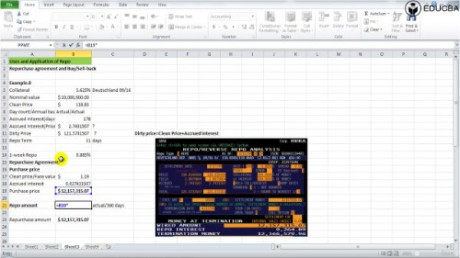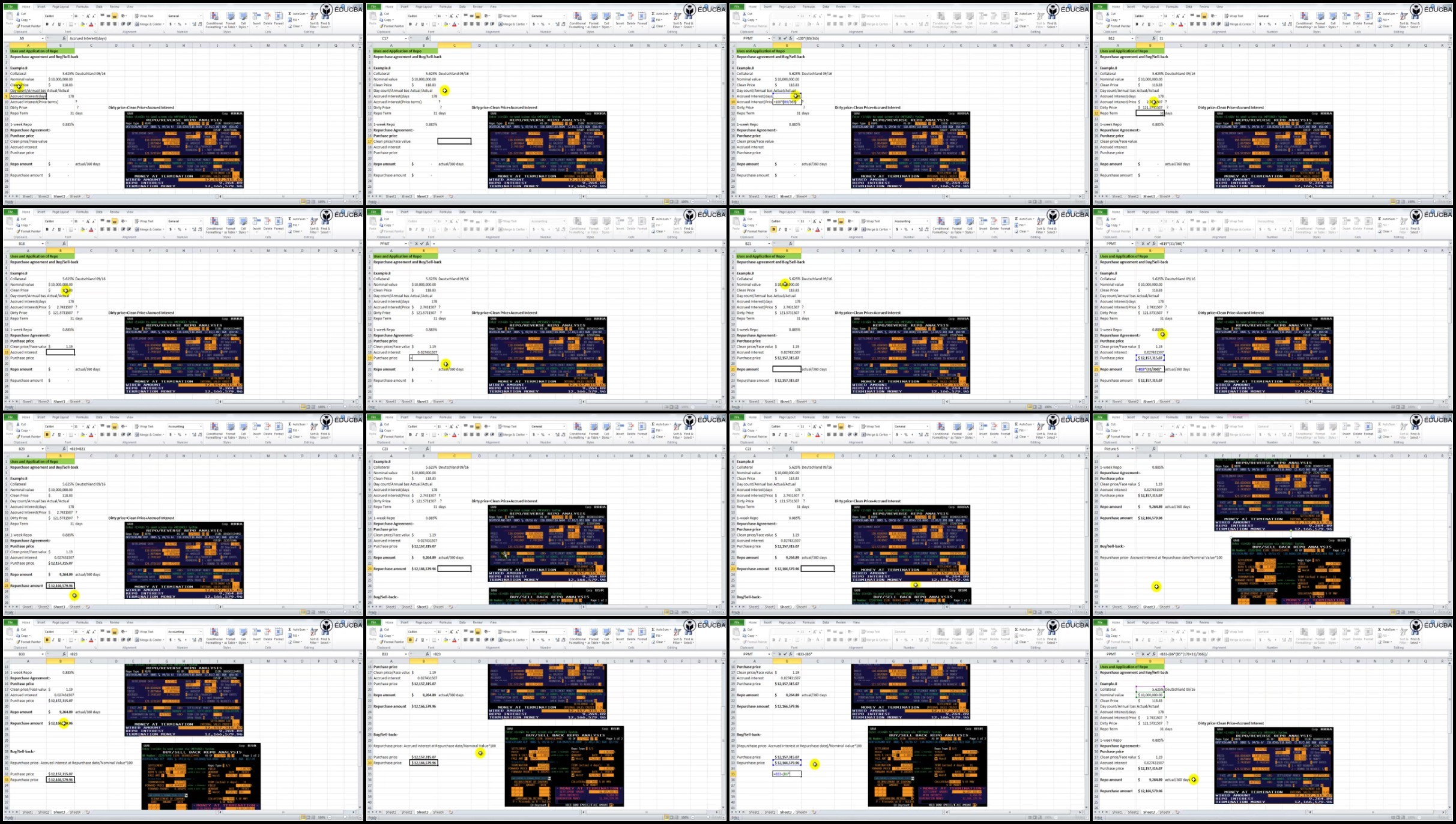Most Commented
Repurchase Agreement (Repo) Markets Basics to Advanced




Description material

Published 7/2024 MP4 | Video: h264, 1280x720 | Audio: AAC, 44.1 KHz, 2 Ch Language: English | Duration: 10h 21m | Size: 3.56 GB
Unlock the intricacies of the Repo Markets and master the art of Accounting for Repo Transactions with our course
What you'll learn
Detailed mechanics and operations of repo markets.
Identification and management of market and credit risks.
Practical trading strategies and examples of repo trades.
Collateral management and valuation techniques.
Comprehensive accounting methodologies for repo transactions.
Accurate calculation of financial metrics and collateral rates.
Financial reporting and compliance with regulatory standards.
Requirements
Basic understanding of financial markets and instruments.
Familiarity with fundamental accounting principles.
No prior knowledge of repo markets is required; however, a background in finance or investment is beneficial.
Description
Course Introduction:The "Repo Markets: Fundamentals to Advanced Techniques" course is meticulously crafted to provide a thorough understanding of the repo markets, including the fundamental mechanics, market participants, risk management, and accounting practices associated with repo transactions. This course is ideal for finance professionals, investment analysts, accountants, risk managers, and anyone interested in gaining a deep insight into the repo markets and their operations.Section 1: Repo MarketsThis section introduces students to the essential aspects of the repo markets. Starting with an overview and the historical growth of the repo market, the course delves into the detailed mechanics of repo trading and the various participants involved. Students will learn about the intricacies of hedging debt issuance, the various types of securities used in repo trades, and the calculation of key financial metrics such as accrued interest and purchase price.Key topics include market and credit risk, repo dealing risk, and collateral management. Practical examples and case studies are provided to illustrate repo trades, variations of repo instruments, and the operational procedures involved. The section concludes with a comprehensive understanding of repurchase agreements, trading strategies, and the critical aspects of repo legal documentation and capital requirements under Basel regulations.Section 2: Accounting for Repo TransactionsIn this section, students are introduced to the accounting methodologies specific to repo transactions. The course covers the categories of investments, basic repo account setups, and detailed repo transaction accounting entries for both sellers and buyers. Students will learn to calculate collateral rates, manage adjustment accounts, and perform financial reporting.The section emphasizes practical applications with examples on balance sheet entries and the changes to repurchase agreements. By the end of this section, students will have a solid grasp of the accounting principles and practices required for accurate and compliant repo transaction reporting.Course Conclusion:Upon completing this course, students will possess a comprehensive understanding of the repo markets and the related accounting practices. They will be equipped with the skills to manage repo transactions, mitigate associated risks, and perform detailed financial reporting. This knowledge is crucial for professionals aiming to excel in the fields of finance, investment, accounting, and risk management.
Who this course is for
Finance professionals seeking to deepen their understanding of repo markets.
Investment analysts looking to enhance their knowledge of trading strategies and risk management.
Accountants and auditors specializing in financial instruments and transactions.
Risk managers focused on identifying and mitigating risks associated with repo transactions.
Regulatory and compliance officers ensuring adherence to financial regulations.
Students and academics pursuing studies in finance, accounting, or related fields.
Financial advisors and consultants aiming to provide expert guidance on repo markets.
Institutional investors involved in repo activities and looking to optimize their strategies.
Anyone interested in gaining a comprehensive understanding of repo markets and their operations.

Download
RapidGator
https://rapidgator.net/file/679d8ab6482f58a5b7edb456b4328a79/Repurchase.Agreement.Repo.Markets.Basics.to.Advanced.part1.rar
https://rapidgator.net/file/5f1dd91e19b7612fef1034c26018d72d/Repurchase.Agreement.Repo.Markets.Basics.to.Advanced.part2.rar
FileStore
NitroFlare
RapidGator
https://rapidgator.net/file/679d8ab6482f58a5b7edb456b4328a79/Repurchase.Agreement.Repo.Markets.Basics.to.Advanced.part1.rar
https://rapidgator.net/file/5f1dd91e19b7612fef1034c26018d72d/Repurchase.Agreement.Repo.Markets.Basics.to.Advanced.part2.rar
FileStore
NitroFlare
Join to our telegram Group
Information
Users of Guests are not allowed to comment this publication.
Users of Guests are not allowed to comment this publication.
Choose Site Language
Recommended news
Commented


![eM Client Pro 9.2.1735 Multilingual [Updated]](https://pikky.net/medium/wXgc.png)






![Movavi Video Editor 24.0.2.0 Multilingual [ Updated]](https://pikky.net/medium/qhrc.png)

